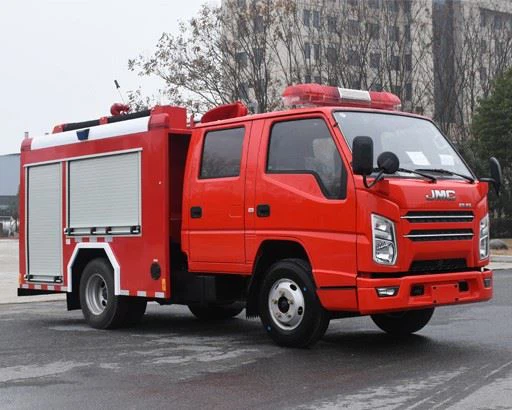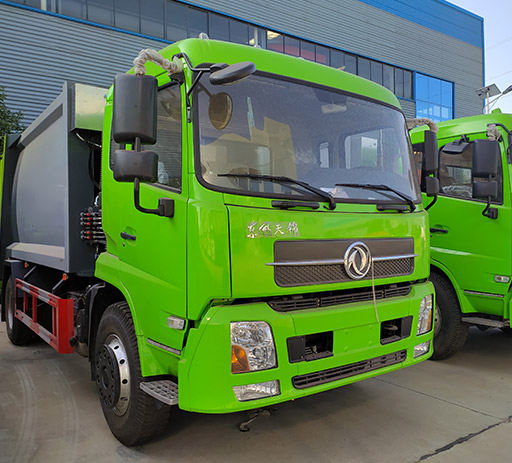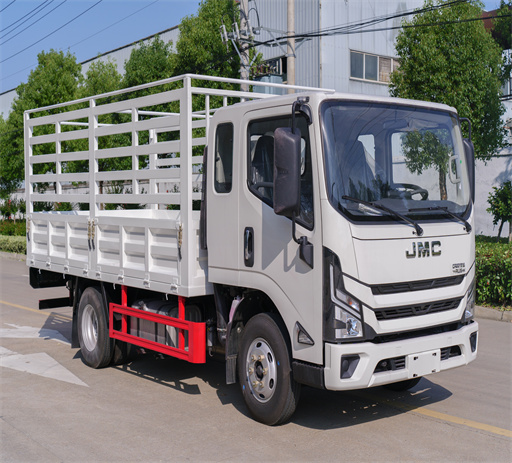The Ultimate Guide to Sewer Vac Trucks: Everything You Need to Know

Introduction
Sewer vac trucks, also known as vacuum trucks, are specialized vehicles designed for efficient waste removal, particularly in urban environments. Their use is crucial for maintaining clean and functional drainage systems. In this comprehensive guide, we will explore the functions, benefits, maintenance, and various applications of sewer vac trucks, ensuring you have all the information you need to understand this essential piece of equipment.
What is a Sewer Vac Truck?
A sewer vac truck is a heavy-duty vehicle equipped with a powerful vacuum system. It is specifically designed to suck up liquids and solid waste from sewers, septic tanks, storm drains, and other locations. These trucks typically feature a tank to store the waste material until it can be disposed of properly.
Key Components of a Sewer Vac Truck
- Vacuum System: The heart of the truck, utilizing suction to collect waste.
- Tank: A large containment unit that holds the collected waste.
- High-Pressure Water Jets: Often included to help break down tougher blockages.
- Hoses and Nozzles: Used to direct the vacuum suction and water jets into hard-to-reach areas.
Types of Sewer Vac Trucks
Sewer vac trucks can be categorized based on their design and intended use:
- Combination Trucks: These trucks combine the functionalities of both vacuuming and water jetting.
- Vacuum Only Trucks: Designed purely for suctioning waste with no high-pressure water capabilities.
- Specialty Trucks: Tailored for specific tasks, such as grease removal or hazardous material handling.
Applications of Sewer Vac Trucks
Sewer vac trucks are essential in various industries and applications. Here are some practical uses:
1. Municipal Waste Management
Cities and local governments use sewer vac trucks for regular cleaning of sewer systems to prevent blockages and flooding. Routine maintenance ensures that the infrastructure remains functional.

2. Construction Sites
Sewer vac trucks are often needed on construction sites to remove excess water, debris, and waste materials quickly and safely, helping maintain work efficiency.
3. Industrial Facilities
Industries producing wastewater or hazardous materials frequently hire sewer vac trucks to ensure proper disposal of waste, complying with environmental regulations.
Example: Chemical Plants
In chemical plants, sewer vac trucks may be employed to handle spills or remove sludge from containment areas, safeguarding both the environment and workers.
4. Emergency Response
In case of natural disasters or sewer emergencies, sewer vac trucks play a crucial role in rapid response scenarios, such as flood cleanup or sewage overflows.
Benefits of Using a Sewer Vac Truck
Utilizing sewer vac trucks offers numerous advantages:
1. Efficiency
These trucks can complete tasks much faster than manual labor, saving time and increasing productivity.
2. Safety
By employing vacuum trucks, workers are less exposed to hazardous materials, reducing the potential for injuries and ensuring compliance with safety regulations.
3. Environmental Protection
Sewer vac trucks ensure proper waste disposal, minimizing pollution and safeguarding surrounding ecosystems.
4. Cost-Effectiveness
Regular maintenance using sewer vac trucks can prevent costly repairs and infrastructure damage in the long run.
How to Maintain a Sewer Vac Truck
Proper maintenance is crucial to ensuring that sewer vac trucks perform effectively.
1. Regular Inspections

Routine checks should be conducted to identify and address any wear and tear on critical components, such as hoses and seals.
2. Cleaning the Tank
After each use, the tank should be cleaned thoroughly to avoid contamination and bad odors.
3. Monitoring Fluid Levels
Regularly check the oil, hydraulic fluids, and other essential liquids to keep the truck running smoothly.
4. Scheduling Professional Maintenance
Engage professionals for annual or bi-annual maintenance checks to ensure that all systems are functioning correctly.
| Maintenance Task | Frequency |
|---|---|
| Visual Inspection | Daily |
| Tank Cleaning | After each use |
| Fluid Checks | Weekly |
| Professional Maintenance | Annually |
Choosing the Right Sewer Vac Truck
When selecting a sewer vac truck, consider the following factors:
1. Size and Capacity
The size of the truck should match the scale of the tasks you plan to employ it for; larger jobs may require more substantial vehicles with greater waste capacity.
2. Type of Waste
Understand the type of waste you will be handling. Some trucks are better suited for liquid waste, while others are designed to handle solids or hazardous materials.
3. Additional Features
Special features like high-pressure jets or specialized filtration systems could significantly enhance performance, depending on your needs.
4. Budget
Determine your budget, keeping in mind that investing in a quality truck can save you money in the long run through reliability and efficiency.
Cost of Sewer Vac Trucks
The cost of a sewer vac truck can vary widely based on several factors:
1. Brand and Model
Different manufacturers have various pricing tiers depending on their reputation and the features they offer.
2. New vs. Used
Buying a new truck offers the latest technology and warranties but can be significantly more expensive than purchasing a used truck.

3. Customizations
Adding features or customizations can increase the price, so weigh the added value against your budget carefully.
Sample Price Range
| Type of Truck | Price Range |
|---|---|
| New Combination Truck | $250,000 – $500,000 |
| Used Combination Truck | $100,000 – $250,000 |
| New Vacuum Only Truck | $150,000 – $300,000 |
| Used Vacuum Only Truck | $50,000 – $150,000 |
Regulatory Considerations
Operating a sewer vac truck involves adherence to various local and federal regulations:
1. Waste Disposal Regulations
Ensure that the waste collected with the truck is disposed of in accordance with environmental regulations to avoid legal penalties.
2. Vehicle Inspection and Licensing
Regular vehicle inspections should be conducted to comply with transportation laws, and operators often need specific licenses to drive specialized vehicles.
3. Safety Standards
Adhere to OSHA and other safety guidelines to protect workers during vacuuming operations and ensure the safe use of trucks.
Frequently Asked Questions (FAQs)
1. How does a sewer vac truck work?
A sewer vac truck uses a powerful vacuum pump to create suction, picking up both liquid and solid waste, which is then stored in a holding tank for proper disposal.
2. What types of waste can sewer vac trucks handle?
Sewer vac trucks can handle various types of waste, including sewage, sludge, liquid waste, and even hazardous materials, depending on the truck’s design.
3. How often should I have my sewer vac truck serviced?
Regular maintenance is essential; a good rule of thumb is to have the truck inspected and serviced at least annually, with routine checks performed more frequently.
4. Can I rent a sewer vac truck instead of buying one?
Yes, many companies offer rental options for sewer vac trucks, which can be a cost-effective solution for short-term projects or emergencies.
5. Are there specific licenses required to operate a sewer vac truck?
Yes, operators typically need a commercial driver’s license (CDL) and may require special certifications depending on the truck type and materials handled.
6. What should I consider when purchasing a used sewer vac truck?
When buying a used sewer vac truck, consider its maintenance history, condition, mileage, and whether it meets your specific needs for waste handling.
